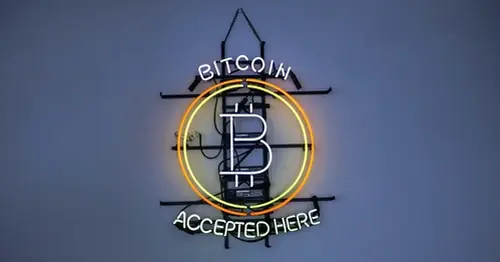
After FTX collapse, new focus on decentralization for crypto
As questions swirl about how much cryptocurrencies will be worth in the wake of the spectacular collapse of the crypto exchange FTX and other major platforms, a key question has emerged: Who will keep your crypto safe?
In response, some in the crypto community are calling for a return to its decentralized roots.
Among the rallying cries of this latent movement: “Not your keys, not your coins.”
In other words: Trust only yourself.
But doing so requires individuals to maintain their own cryptocurrency wallets through a more complicated — if safer — process that involves generating complex passwords and sometimes buying physical hardware to keep track of crypto, as opposed to entrusting it to an exchange.
"A company like FTX was supposed to hold your assets, but they ended up lending them out," Tracy Wang, deputy managing editor at the crypto news site CoinDesk, told NBC News.
That concept is what undergirds the traditional monetary system and seems to go against the fundamental philosophy of cryptocurrency.
"This is like taking power back and being in charge of your own money," Wang said of decentralization.
Prior to its collapse, FTX was the world's fifth-largest cryptocurrency exchange, according to data from the crypto group CoinGecko cited by Reuters, processing $627 billion in trading volume year-to-date.
Now, it's unclear whether anyone who kept their money on the exchange will be made whole, as FTX sorts through a bankruptcy process that its current overseer has already described as unprecedented in its complexity. It's also a rude awakening for the people hurt most by the company's bankruptcy — and the impetus for a return to decentralization.
It becomes a choice between the risk of someone potentially absconding with your money — even if the exchange makes it easier to buy, send and hold it — versus keeping total control of it, though at the cost of a more cumbersome accounting process.
But it's not particularly easy to do. Keeping crypto offline except to trade it means generating a set of public and private keys — a string of randomly generated letters and numbers — and then creating an additional, backup seed phrase consisting of 12 or 24 random words in case you lose the initial set of keys. It also means buying a USB-like device that acts as a piggy bank for your crypto.
That used to be the way of the world when it came to bitcoin. But as cryptocurrencies broadly became more mainstream, companies and exchanges sprang up that allowed people to buy crypto without those steps.
Today, platforms seemingly untouched by the FTX collapse, like Coinbase, have sought to reassure their users that their assets remain safe and, in some cases, are not subject to lending.
But that may not be enough for some users.
"Those of us grizzled veterans have seen this game before," said Caitlin Long, a blockchain consultant and founder and CEO of the crypto group Custodia Bank. "We've been trying to warn folks; get your coins off exchanges, and there's been a huge wave since FTX collapsed."
On Friday, Bitcoin Magazine reported that more than 150,000 bitcoin, some $2 billion worth, had been taken off exchanges over the past two weeks.
Still, among some influential crypto players, going fully off the grid would be a step in the wrong direction.
Instead, there are growing calls for increased regulation that would force crypto exchanges to keep customers' money firewalled so that it cannot be repurposed for other uses.
Long describes the idea as treating customers' deposits like a valet treats a car.
"You’re just giving temporary possession for safekeeping. [They] can’t lease it to be used on Uber, and if the garage goes bankrupt, that’s not an asset of the garage; they can't drive your car away," she said. "This is very simple, very boring — but foundational."
As an example, Long highlighted the state of Wyoming where she said its crypto regulations already require that any exchange based there treat customers' assets in this way.
"If Wyoming's regime had been in place, FTX wouldn’t have happened," Long said.
There is a proposal similar to Wyoming's system making its way through Congress that is sponsored by Sens. Cynthia Lummis, R-Wyo., and Kirsten Gillibrand, D-N.Y.
But such a bill, as well as others that propose regulations for the crypto industry, could face opposition. Sen. Sherrod Brown, D-Ohio, chair of the Senate Committee on Banking, Housing, and Urban Affairs, said last week that cryptocurrencies still don’t offer “anything useful or beneficial.”
“The recent collapse of FTX is a loud warning bell that cryptocurrencies can fail, and just like we saw with over-the-counter derivatives that led to a financial crisis, these failures can have a ripple effect on consumers and other parts of our financial system," Brown said in a statement.







